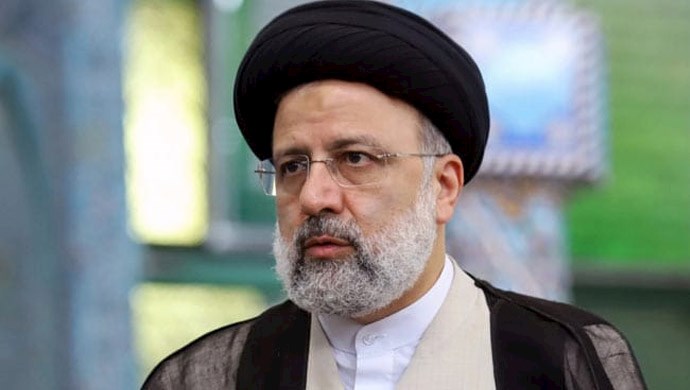Analysis by PMOI/MEK
Iran, June 25, 2021—On Thursday, an online conference held by the National Council of Resistance of Iran (NCRI) discussed the implications of Ebrahim Raisi becoming the Iranian regime’s new president.
While much has been made about on how Raisi, who is viewed by the West as an ultraconservative, will affect Tehran’s relations with the international community, one thing that stands out in all conversations is Raisi’s human rights record.
Raisi is notoriously renowned for his role in the 1988 massacre of political prisoners in Iran. At the time, as deputy prosecutor general of Tehran, Raisi sat on the “death committee,” a group of officials that summoned political prisoners and sent them to the gallows if they did not repent their opposition to the mullahs’ regime.
In Thursday’s conference, Geoffrey Robertson, QC, human rights barrister, academic and author, said, “The UN will have to grapple with the fact that one of its members is led by an international criminal. Diplomats will have to be careful. They must never shake the bloody hands of this criminal. His presence in any international forum will damage that forum. It poses a problem that should first be addressed by the UN. They should go back and reexamine the events of 1988, the lies of Iran’s representative, and the role of Raisi in one of the worst crimes against humanity since the war.”
Robertson described the 1988 massacre as “a crime against humanity and possibly a genocide” and “an unlawful exercise of state power.”
Nick Fluke, a distinguished High Street Solicitor and the President Emeritus of the Law Society of England and Wales, described Raisi as a leader who should be shunned and lacks credibility.
“Raisi said on record that he was proud of his role in the massacre of political prisoners. This should be a wakeup call for all of us. We should not remain silent,” Fluke said.
Ambassador Lincoln Bloomfield Jr., Chairman Emeritus at the Stimson Center, stressed that Raisi brings nothing new to the table, and everything that he stands for is what the regime has represented for four decades.
“Let us be clear. The founder of the regime, Ayatollah Khomeini, and his successor, Ayatollah Khamenei, are both major human rights violators,” Bloomfield said. “In 43 years since the revolution, Khomeini founded the religious dictatorship and then handed his job to Ali Khamenei. Khamenei didn’t have religious credentials but was reliable to keep the regime in power. And now Raisi is even more reliable to crack down on dissent.”
“Raisi became the president due to his unquestioning obedience to Khamenei and his penchant to murder with impunity and suppress the dissidents,” said Reza Fallahi, a former political prisoner and one of the witnesses and survivors of the 1988 massacre. “I am one of the individuals who will file a complaint against Raisi in the UK. I can assure you that We will continue our legal endeavor until we bring him to justice.”
Tahar Boumedra, international human rights lawyer and coordinator of “Justice for the Victims of the 1988 Massacre of Political Prisoners in Iran” (JVMI), discussed plans to file official complaints against Raisi and other perpetrators of this crime against humanity. “We strongly believe that Raisi’s place is not to run a state or be a president. His place is in fact in Evin prison or in the detention facility in the Hague,” he said.
These are the latest expressions of outrage at the appointment of Raisi as Iran’s president. In a statement on the morrow of the Iranian regime’s sham presidential election, Amnesty International’s Secretary General Agnès Callamard said, “That Ebrahim Raisi has risen to the presidency instead of being investigated for the crimes against humanity of murder, enforced disappearance and torture, is a grim reminder that impunity reigns supreme in Iran.”
Callamard reiterated that Raisi played a key role in the 1988 massacre of political prisoners and, as the head of judiciary before his presidency, he has “presided over a spiralling crackdown on human rights.”
Callamard called for Raisi “to be investigated for his involvement in past and ongoing crimes under international law.”
Bärbel Kofler, the human rights commissioner in the German government, tweeted, “It is concerning that the elected president has until now not clarified his own past or distanced himself clearly from human rights abuses. Human rights are non-negotiable, and Iran has committed itself internationally to adhering to them.”
Kofler added, “The voice of the people in Iran who are calling for freedom and human rights must be heard!”





